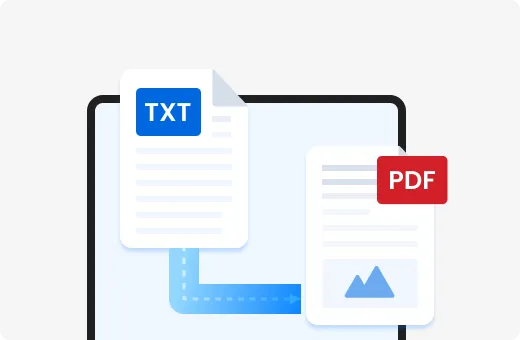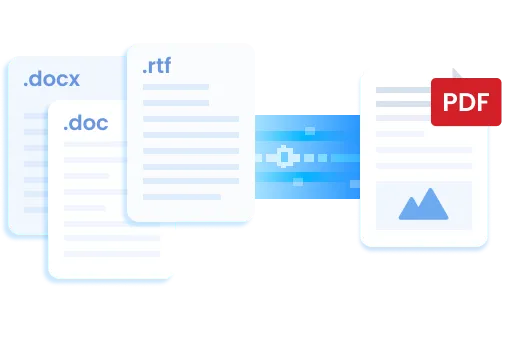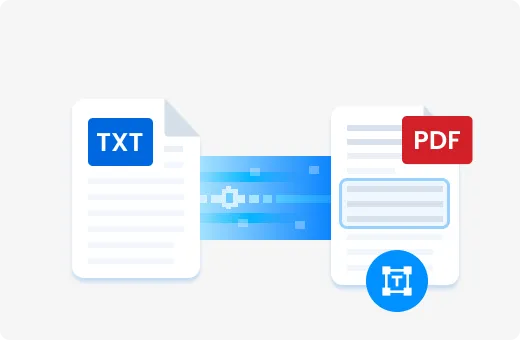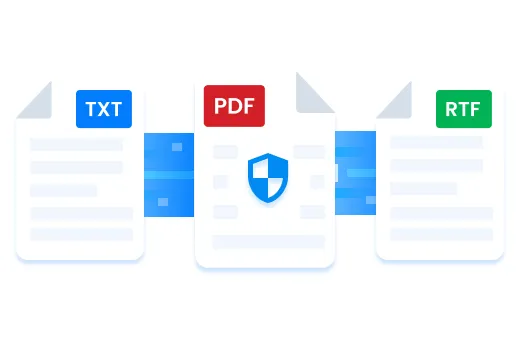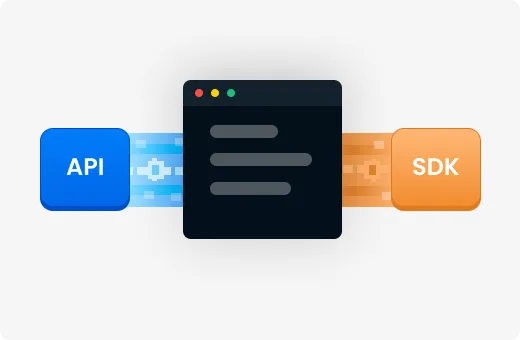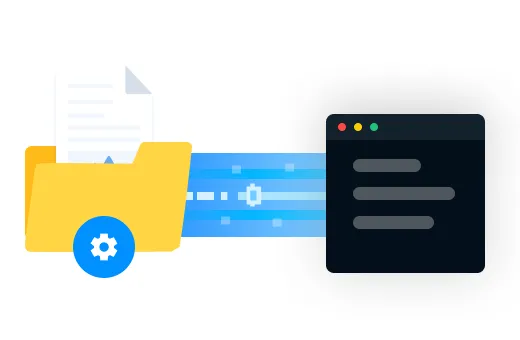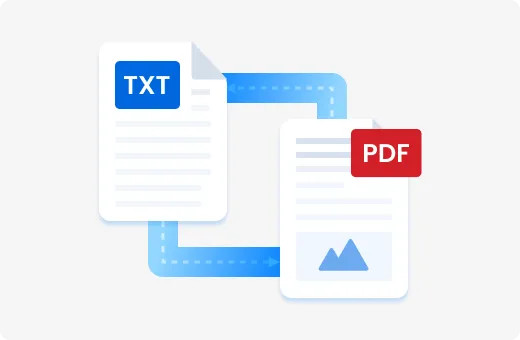Convert TXT to PDF
Professional Text-to-PDF API & SDK for DevelopersTransform Plain Text into Structured
PDF Documents
The Text to PDF conversion API and SDK provides developers with a robust solution for programmatically transforming plain text files into professionally formatted PDF documents. This powerful tool enables your applications to convert .txt, .doc, and other text-based formats into polished, shareable PDFs with consistent formatting and structure.
Built specifically for development teams that need reliable document processing capabilities, our TXT to PDF conversion technology maintains the original content structure while applying professional formatting. The API's asynchronous processing model handles files up to 10MB, making it suitable for both individual document processing and batch conversion workflows.
For software vendors and development teams facing challenges with document format standardization, our solution eliminates the complexity of building custom PDF generation logic while providing complete control over the conversion process through a clean API interface or comprehensive SDK.
Asynchronous Processing
The API implements an asynchronous processing model ideal for server-side implementations and automation workflows:
POST/txt-to-pdf/v1
The endpoint returns a 202 response with an operation ID that can be used to check conversion status:
{
"id":"3fa85f64-5717-4562-b3fc-2c963f66afa6"
}
Status checking is performed via:
/GET/operation/v1/{operationId}/status
This architecture prevents blocking operations and enables efficient handling of larger files or batch processing scenarios.
SDK Implementation
The SDK provides programmatic access to the same conversion capabilities with native language bindings, eliminating the need for direct HTTP request handling. Implementation requires minimal code:
Initialize the SDK with your authentication credentials
Receive the resulting PDF as a file or memory stream
Call the conversion method with the source file path or stream
Handle any exceptions through standard error handling patterns
Frequently Asked Questions
What are TXT Files?
TXT files (.txt extension) are fundamental text documents containing ASCII or other character sets. They're used for everything from simple word processing to coding and software directives. These files offer cross-platform compatibility and easy transfer across systems, but lack rich-text formatting capabilities like bold, italic styling, or hyperlinks.
How can I transform Notepad documents into PDF format?
You can convert Notepad files to PDFs without specialized software like Adobe Acrobat by using our PDF SDK or API. The conversion maintains all content while applying professional formatting, with implementations available for both programmatic integration and interactive usage.
What is the purpose of converting text documents to PDF?
While text documents excel at content editing and compilation, PDF format provides superior display consistency and broader compatibility. PDFs are viewable on virtually any system without requiring specific software like Microsoft Office, making them ideal for document distribution and archival.
